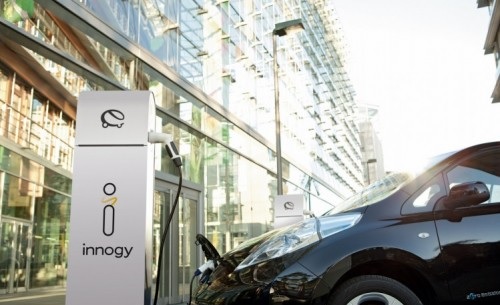Innogy, the German clean power firm that owns Npower, has said it wants to “drive the energy transition forward” after its grids and renewables arms positioned themselves for growth.
This performance came at the same time that the company issued a warning over earnings from its UK retail division, citing “fierce competition and political pressure”.
Innogy reported its H1 2017 results this morning, revealing that its earnings before interest, tax, depreciation and amortisation (EBITDA) had risen 2% year-on-year to €2.4 billion.
The company said its main driver of growth was its grid operations business, active in Germany and Eastern Europe, which saw EBIT climb 19% to €1,094 million.
Its renewable energy generation division saw its EBIT contract to €179 million on the back of below average wind speeds and hydro generation, but innogy said its retail outfit was of graver concern.
Claiming that the situation in the UK retail power market remained “very tense”, Npower saw its revenues decline by around €97 million year-on-year. To this end Innogy said it would have to chase efficiencies to offset that performance.
However Peter Terium, chief executive at innogy, paid testament to its other business units and said it was aligning its businesses to the “demands of the energy world of the future”.
“We are tapping into new markets in the area of electricity generation from renewables, with a particular focus on North America.
“Since the beginning of the year, we have been putting all our efforts into solar and storage technologies via our new acquisition, Belectric. In short, we are driving the energy transition forward,” he said.
Innogy’s investment in these areas is up year-on-year and follows its purchase of Belectric, which Terium praised as a “perfect fit” within its new strategy. Today Innogy revealed the buy had cost it €74 million up front with a further €7 million in conditional payments included in the agreement. It has also taken on the 550 staff on Belectric’s payroll as it looks to bolster its presence in solar and battery development throughout Europe.
Other developments within Innogy’s decentralised power ambitions included further progress on its Internet of Things platform work with Kiwigrid, in which it owns a stake, and considerable growth in its e-mobility and electric vehicle infrastructure outfits, particular in North America.
Bernhard Günther, CFO at innogy, said it was the company’s aim to be “trailblazer”.
“We are laying the cornerstone for this today: by investing in infrastructure in order to make our networks more intelligent and robust to meet the rising demands of an increasingly decentralised energy generation landscape,” he said.
Innogy’s performance follows just a few days after a trading update from its compatriot rival E.On making much of the same noises. Earlier this week E.On revealed that its new clean energy-focused strategy had performed so well it was allowing the firm to plough yet more money into it.





